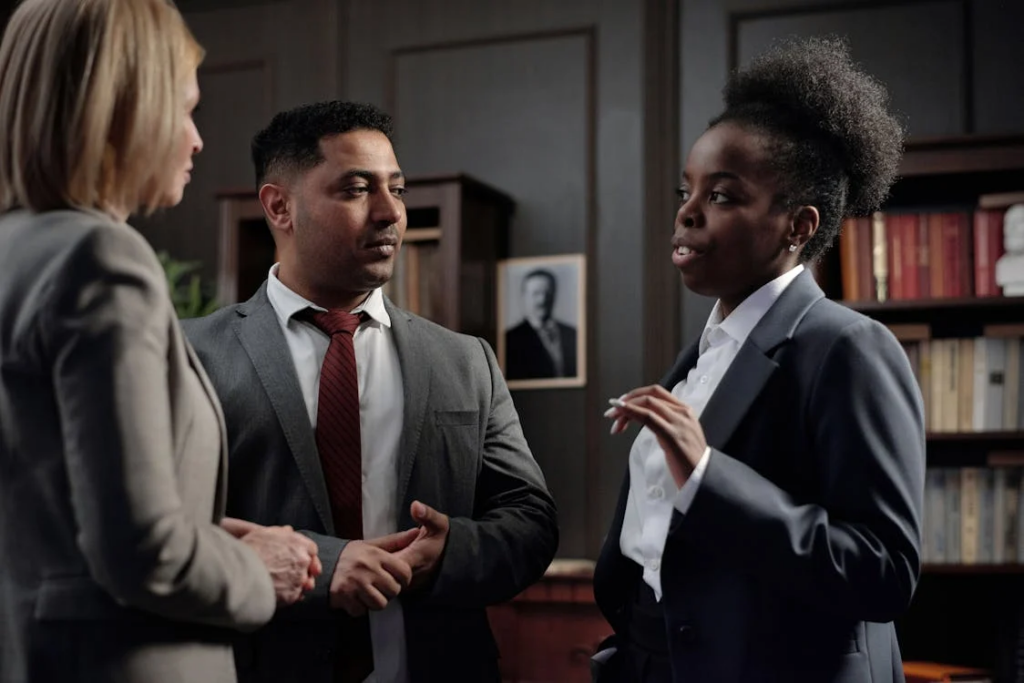Divorce is an emotionally and legally complex process. While many couples choose to settle outside of court, some cases require a divorce trial to resolve outstanding issues. Whether you are already in the middle of a divorce or considering the possibility of one, understanding what happens in a divorce trial is essential.
This step-by-step breakdown by divorce attorneys in Houston will guide you through the process, from how cases are presented to the evidence required and how to effectively prepare for trial.
1. Pre-Trial Preparations
Before the trial even begins, both parties must go through a series of steps to prepare for court. This typically involves gathering all necessary documents, including financial records, proof of assets, and evidence related to child custody, if applicable. Both sides will also submit any relevant paperwork, including affidavits and witness lists, to the court.
If you have a divorce attorney, they will guide you in assembling these documents and strategizing your case. It’s important to be thorough and honest during this stage, as incomplete or misleading information can hurt your case later.
2. Opening Statements
The trial begins with opening statements from both parties. This is an opportunity for each side to explain their perspective and outline the arguments they will present to the court. The plaintiff (the spouse who initiated the divorce) usually goes first, followed by the defendant.
During opening statements, the divorce attorneys present a summary of the evidence they will bring forward to support their case, although they won’t introduce actual evidence at this stage. Opening statements provide a roadmap for what the court can expect to hear over the course of the trial.

3. Presenting Evidence and Testimonies
After opening statements, the trial moves into the presentation of evidence. Both parties will have the opportunity to present documents, testimony, and witnesses to support their claims. Evidence can include financial records, expert testimony (such as appraisals of property or evaluations for child custody), and personal testimonies.
Witnesses can be called to testify, including experts and individuals who can speak to the issues at hand. For example, if child custody is a central issue, a psychologist or counselor might be called to testify about the children’s needs or each parent’s fitness.
It’s important to prepare your witnesses in advance and ensure they understand what will be expected of them during the trial.
4. Cross-Examination
Once the opposing party has presented their evidence, each side has the opportunity to cross-examine the other’s witnesses. Cross-examination allows the divorce attorney to challenge the credibility and reliability of the witness’s testimony, highlighting any inconsistencies or contradictions in their statements.
Effective cross-examination can make a significant difference in a divorce trial. A skilled family law attorney will know how to question witnesses in a way that undermines the opposing party’s case while reinforcing their own.

5. Closing Arguments
Once all evidence has been presented and witnesses have been questioned, each side will make a closing argument. This is your divorce attorney’s final chance to summarize the evidence, reinforce the key points, and persuade the judge to rule in your favor.
Closing arguments are your last opportunity to highlight the strength of your case. It’s essential that your attorney effectively ties together all the facts presented during the trial and shows how they support your desired outcome.
6. The Judge’s Deliberation
After closing arguments, the judge will deliberate on the case. In some situations, the judge may make an immediate ruling, but more often, they will take time to review the evidence and consider all of the factors involved. In some cases, the judge may even request additional documentation or testimony before making a final decision.
It’s important to be patient during this period. Judges often have a heavy caseload, and the decision-making process can take time. You will be notified once a ruling has been made, and the court will issue a written order outlining the final decision.
Secure Your Future with Expert Family Law Attorneys in Houston
Facing a divorce trial? Don’t navigate this challenging process alone. Daniel Ogbeide Law is here to protect your rights and guide you every step of the way. With expert legal support, you can achieve the best possible outcome. Contact our divorce attorneys in Houston today to schedule your consultation and take control of your case!

